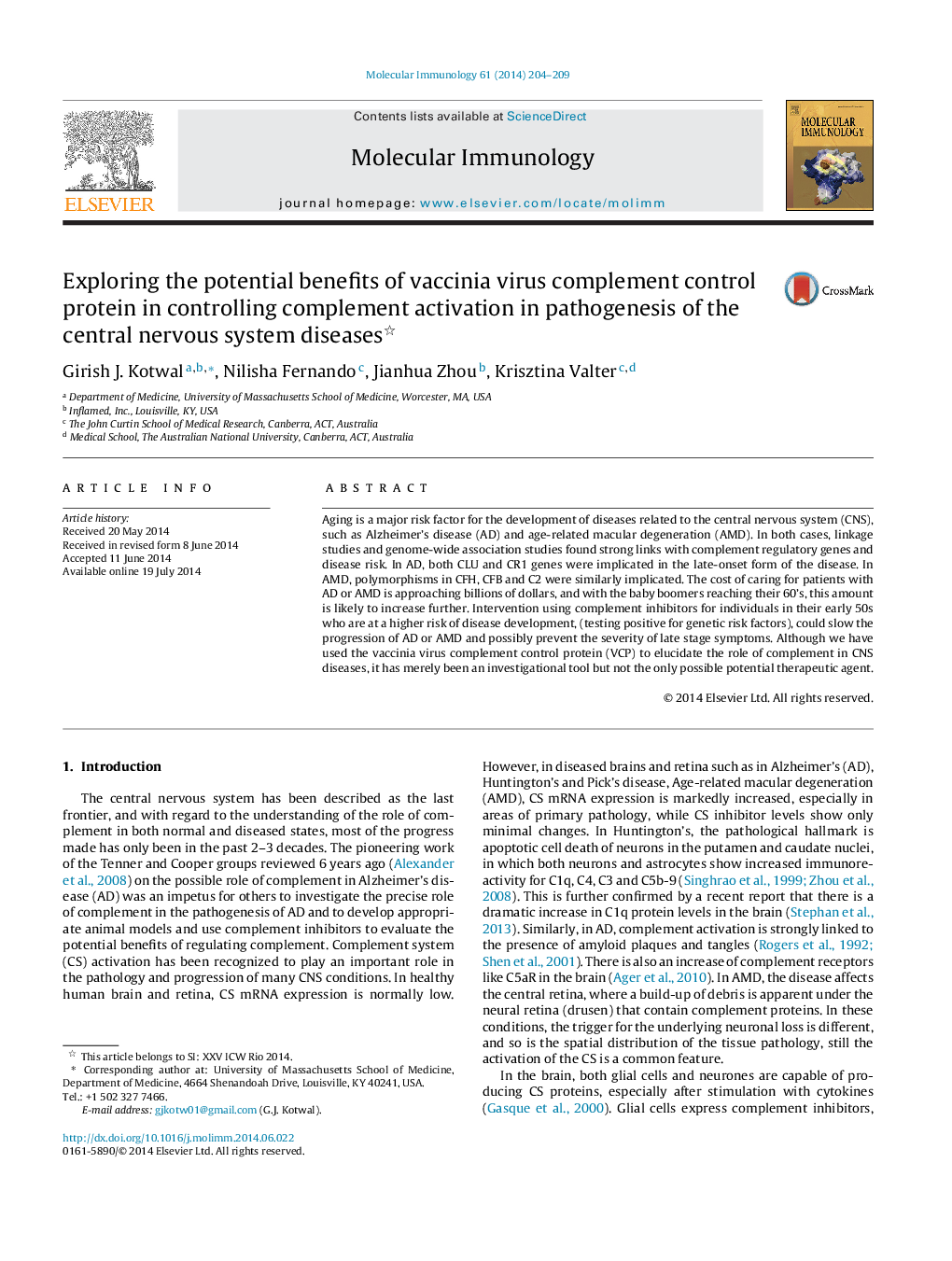| Article ID | Journal | Published Year | Pages | File Type |
|---|---|---|---|---|
| 5916873 | Molecular Immunology | 2014 | 6 Pages |
â¢Aging can result in the decline in the Central nervous system.â¢Alzheimer's disease (AD) and Macular degeneration (MD) are partially a result of aging and also a result gene defects.â¢Complement plays a vital role in the pathogenesis of AD and MD, although other causes can have a similar effect.â¢Complement control with VCP, compstatin, C5aR and miRNAin these disease states could potentially have beneficial outcome in reducing the severity of these diseases or slowing the progression of these diseases.
Aging is a major risk factor for the development of diseases related to the central nervous system (CNS), such as Alzheimer's disease (AD) and age-related macular degeneration (AMD). In both cases, linkage studies and genome-wide association studies found strong links with complement regulatory genes and disease risk. In AD, both CLU and CR1 genes were implicated in the late-onset form of the disease. In AMD, polymorphisms in CFH, CFB and C2 were similarly implicated. The cost of caring for patients with AD or AMD is approaching billions of dollars, and with the baby boomers reaching their 60's, this amount is likely to increase further. Intervention using complement inhibitors for individuals in their early 50s who are at a higher risk of disease development, (testing positive for genetic risk factors), could slow the progression of AD or AMD and possibly prevent the severity of late stage symptoms. Although we have used the vaccinia virus complement control protein (VCP) to elucidate the role of complement in CNS diseases, it has merely been an investigational tool but not the only possible potential therapeutic agent.
